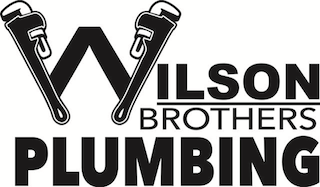Plumbing Help and Resources for Your Needs
Get Expert Plumbing Help and Resources Here
Frequently asked questions
Please note that these responses are general guidelines, and it’s essential to consult a licensed plumber for accurate advice tailored to your specific situation. Plumbing issues can vary, and professional evaluation is crucial to address them effectively.
How do I prevent my pipes from freezing during winter?
To prevent frozen pipes, you can insulate exposed pipes, keep cabinet doors open to allow warm air circulation, and let faucets drip during extremely cold temperatures.
What are the signs of a hidden water leak in my home?
Signs of a hidden water leak include unexplained increases in water bills, mold or mildew growth, musty odors, water stains on walls or ceilings, and sounds of running water when no fixtures are in use.
How can I unclog a stubborn drain?
For minor clogs, try using a plunger. If the clog persists, it’s best to contact us so that we can utilize professional tools to clear the blockage.
Is it necessary to hire a professional plumber for a minor plumbing issue?
While minor plumbing issues can sometimes be resolved by homeowners, it’s advisable to consult a professional plumber. We have the expertise to identify underlying problems and ensure proper repairs, preventing further damage or potential hazards.
How often should I schedule plumbing maintenance?
It’s recommended to schedule annual plumbing maintenance to catch any potential issues early on and ensure your plumbing system is functioning optimally. However, older systems or properties with specific concerns may require more frequent inspections.
What are the signs that my water heater needs repair or replacement?
Common signs include inadequate hot water supply, strange noises coming from the water heater, water leaks, rusty water, and a significant decrease in water temperature. We can assess the situation and recommend repair or replacement options.
Why does my drain get clogged?
Usually drains are clogged because people are not careful of what they put in them, especially in the kitchen. Other drains, like in the bathroom, get clogged because of the oil residue from soaps, shampoos and hair. It is recommended that you are conscious of what you put down your drains and treat them regularly with a drain cleaner such as Bio-Clean.
Why does the toilet keep running?
Usually, the flap in the bottom of the tank isn’t sealing shut. Take the top off the tank and flush the toilet while watching the rubber flap. Does it completely close? If not, even though water is entering the tank, some of it is flowing out through the unsealed flap and therefore, the water continues to run because the float ball trigger is never activated to stop the flow since water never reaches the fill line.
Is it safe to use chemical drain cleaners?
Drain cleaners are usually very toxic and not a good thing to keep around your home. Additionally, toxic chemicals also have a negative effect on your pipes, causing deterioration from the inside out. There are various products on the market that contain “friendly” bacteria and enzymes. These work great for keeping drain sludge and grease from building up on the pipes. For serious clogs contact us.
What should I do in a plumbing emergency before the plumber arrives?
In a plumbing emergency, the first step is to shut off the main water supply to prevent flooding. Next, turn off any water-using appliances and try to contain the leak with towels or a bucket. If there’s a burst pipe, open nearby faucets to drain excess water. Take photos of the damage for insurance purposes, and call a licensed plumber immediately. Acting quickly can minimize water damage and repair costs.

